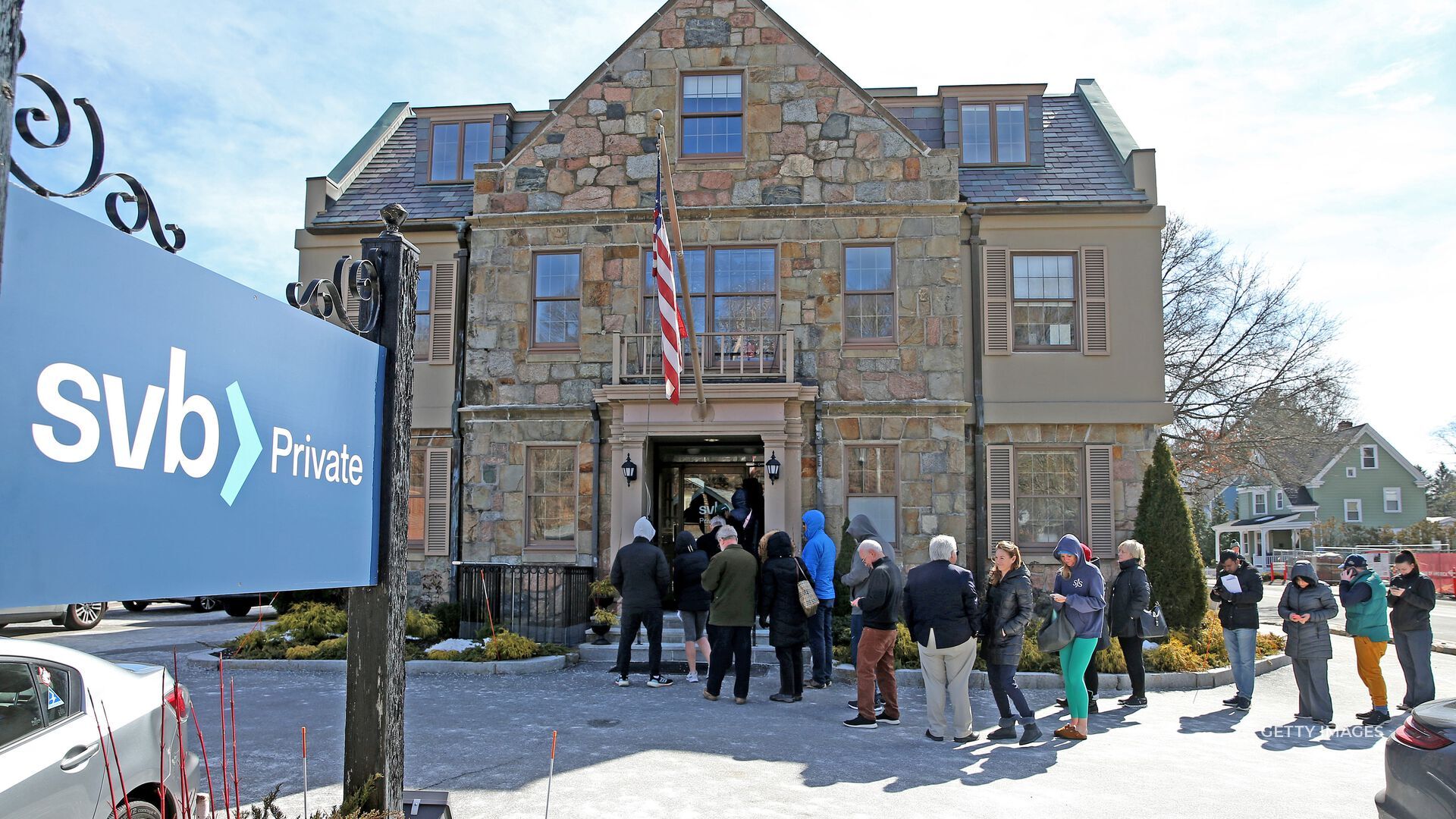In the wake of a bank run on Silicon Valley Bank that contributed to its collapse earlier this month, a new study from researchers at the National Bureau of Economic Research found nearly 200 banks would be vulnerable to the same risk if met with a similar event.
The researchers said in a working paper that if half of uninsured depositors at banks withdrew their funds, 186 banks would risk failure and could not support even their insured depositors.
Interest-rate risks
The Federal Reserve’s aggressive rate-hike campaign, which has raised interest rates from near zero in early 2022 to 5% in March 2023, has decreased the value of existing bank assets like government bonds and mortgage-backed securities.
“The recent declines in bank asset values very significantly increased the fragility of the U.S. banking system to uninsured depositor runs,” the researchers wrote in the paper.
The paper adds that these banks would only be vulnerable if the government takes no action.
“So, our calculations suggest these banks are certainly at a potential risk of a run, absent other government intervention or recapitalization,” the paper reads.
Silicon Valley Bank had billions of dollars tied up in long-term Treasury bonds, which lost value due to rising rates. When depositors pulled their funds from the institution, it didn’t have the cash on hand to meet the requests.
Rescuing uninsured depositors
The Federal Deposit Insurance Corporation took control of the failed bank and eventually made deposits available to all customers, even those with more than the FDIC-insured limit of $250,000. The working paper published in the Social Science Research Network noted that SVB had a “disproportional share of uninsured funding: only 1% of banks had higher uninsured leverage.”
That said, researchers noted that when it comes to the interest-rate risks SVB faced, 10% of banks have larger unrecognized losses and 10% of banks have lower capitalization than SVB.
North Carolina-based First Citizens Bank stepped in and acquired $56.5 billion in deposits and $72 billion in loans from Silicon Valley Bank at a $16.5 billion discount. The FDIC expects the bank’s failure will cost the federal deposit insurance fund around $20 billion.
Banks under federal review
Federal Reserve Chair Jerome Powell attempted to assuage the fears over broader problems in the nation’s financial system.
“The banking system is sound and it’s resilient,” Powell said last week following its latest rate hike. “It’s got strong capital and liquidity. We took powerful actions with the Treasury and the FDIC, which demonstrate that all depositors’ savings are safe.”
“We’re undertaking a thorough internal review that will identify where we can strengthen supervision and regulation,” Powell continued.
That review will be publicized on May 1, according to regulators who testified in front of the Senate banking committee Tuesday, March 28. But some analysts worry that if the broader contagion is felt in the border banking system, the government will be forced to decide which banks to save.
“What’s the Fed going to do?” Hal Lambert, founder of Point Bridge Capital asked during an interview with Straight Arrow News. “Are they going to let depositors at those banks lose their money and start picking winners and losers at the regional bank level?”


